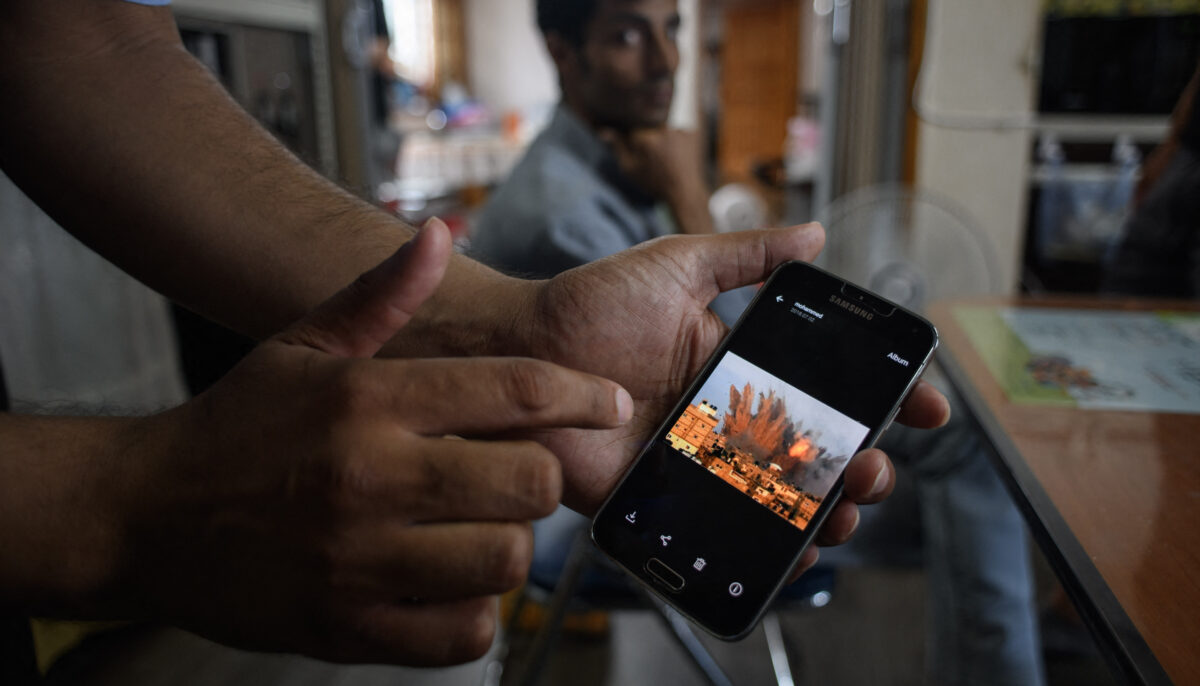On July 8, the military police in Marib province, which is under the control of the internationally recognized and Gulf-backed government, arrested social media activist Maneh Suleiman. He was arrested for a Facebook post criticizing certain religious narratives pertaining to the concepts of “Al-Wilayah” (statehood) and “Al-Ghadir Day.”
Suleiman remained in detention without disclosing his whereabouts until September 14, when the Military Prosecutor in Marib initiated his military trial. He was accompanied by media activist Hafez Muteir, who had been arrested for a post on the same platform, revealing the violations suffered by Suleiman in detention.
The trial minutes listed no evidence except for a few posts from their personal Facebook accounts. Their arrest contradicts the Yemeni Constitution and national laws that guarantee personal freedoms and the right to expression.
Article 3 of the Press and Publications Law stipulates that “Freedom of knowledge, thought, the press, expression, communication, and access to information are rights granted to citizens which enable them to express their thoughts verbally, in writing, in pictorial or in drawing form or by any other means of expression. These rights are guaranteed to every citizen by the Constitution and by the provisions of this law.”
This renders the current trial illegal, as it paves the way for further repression and the targeting of bloggers, especially in the absence of any Yemeni laws specifically addressing social media and online activity.
On the evening of September 26, the Houthi group arrested more than 1,300 individuals after monitoring and searching their phones in northern Yemen. These individuals had participated in celebrations commemorating the 61st anniversary of the September 26 revolution. The group has refused to release them to this day without levying any charges against them or providing any justification for their continued detention.
In Aden, in the south of the country, journalist Ahmed Maher is spending his second year in the detention facilities of the Southern Transitional Council. He was arrested on August 6, 2022, for his work in journalism and articles published on social media. Armed members of the Transitional Council recorded a video of Maher confessing to crimes against them while exhibiting visible signs of torture, according to Reporters Without Borders (RSF).
Media Under Scrutiny in Yemen
Armed factions in Yemen, as well as government forces, have endless disagreements, but they have converged on tightening the noose around journalists and bloggers on social media, subjecting them to scrutiny. They have launched repeated campaigns to inspect the phones of citizens, leading to widespread arrests with the aim of instilling fear among civilians.
In an interview with SMEX, Yemeni human rights activist Hossam Ahmed stated that every time he travels from the city of Taiz in southwestern Yemen to Sanaa to visit relatives, he changes his mobile phone and deletes his social media accounts.
Ahmed has been stopped several times at security checkpoints and had his phone searched. On one occasion, operatives affiliated with the Houthi group managed to recover all the deleted content from his phone at a checkpoint near the entrance to Sanaa. He was interrogated and detained for over six hours simply because there was a satirical cartoon in one of the WhatsApp groups, as he told SMEX.
Abdul Majeed Sabra, a lawyer specializing in defending political detainees, also sheds light on the violation of Yemeni law by the conflicting parties in an interview with SMEX. He explains that “according to legal rules, crimes and punishments are determined by legal provisions, and the judiciary or law enforcement authorities are not allowed to criminalize any act that is not explicitly and clearly stated in a relevant legal provision. The judiciary must accurately enforce the provisions of the law.”
In addition, judges are prohibited from making analogical judgments when implementing the Penal Code, as was the case in the trial of Maneh Suleiman and Hafez Muteir. The judiciary is prohibited from criminalizing a certain act and imposing punishment on an individual by way of analogy to another act, even if the law criminalizes the latter and specifies its punishment.
In simpler terms, judges are not permitted to apply a legal provision from the Press and Publications Law to an incident on social media. But in reality, this happens frequently, as in the case of a trial where 10 journalists were sentenced to death in 2020.
Absence of Law
Omar Al-Kindi, the Director of the Digital Rights Project at the SAM Organization for Rights and Liberties, told SMEX that in areas controlled by the internationally recognized government, activists and journalists face arrests and trials due to their posts on social media.
Al-Kindi noted that this reality is similar to the situation faced by journalists residing in areas controlled by the Houthi group, indicating that any criticism on social media may lead to unjustified violations and arrests.
The Yemeni human rights advocate points out that the conflicting parties in Yemen benefit from the absence of cybercrime laws to justify their violations, especially concerning digital privacy breaches against activists and journalists.
“Religious groups exert significant pressure on the authorities, leading to further violations that include hacking activists’ and journalists’ accounts and searching their phones. Without a cybercrime law in Yemen, authorities commit violations without consequences. This underscores the necessity of advocating for laws that protect citizens and end this chaos,” he added.
In early October, poet Mohammed Al-Jarmouzi documented, through a live broadcast on Facebook, the intrusion of a military force affiliated with the Houthi group into his home in Sanaa. He was subsequently taken to an undisclosed location because of his vocal opposition to the ‘corruption’ of the group’s officials on his Facebook account. This incident occurred after he was forced to sign a pledge to refrain from expressing his views in August, obliging him to abstain from posting on social media.
Since the beginning of the temporary truce in Yemen and the cessation of military operations in April 2022, conflicting parties have devoted themselves to pursuing journalists and activists on social media, and the intensity of prosecutions and arrests has increased over the past months across the country.
Yemen has been witnessing military confrontations since March 2015 between the Houthi group and the internationally recognized government supported by Gulf countries. This ongoing conflict has caused the Yemeni people in general, and journalists more specifically, immense suffering due to the conflicts and the digital restrictions imposed by the conflicting parties.



